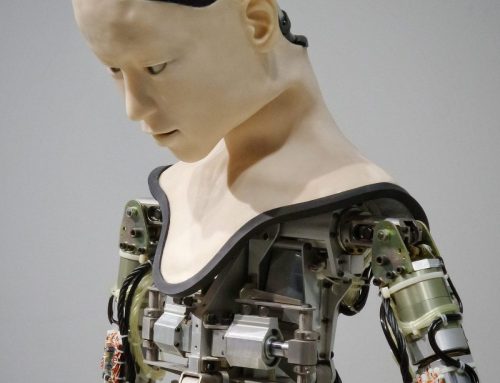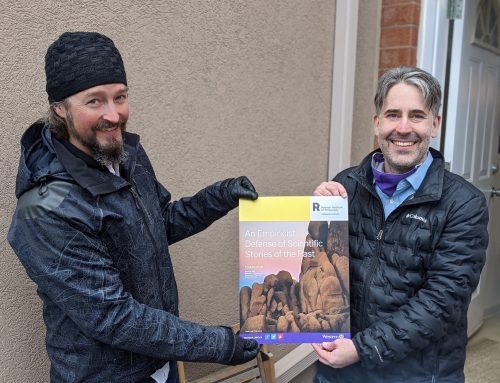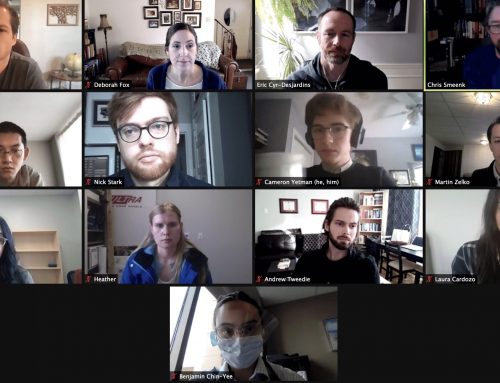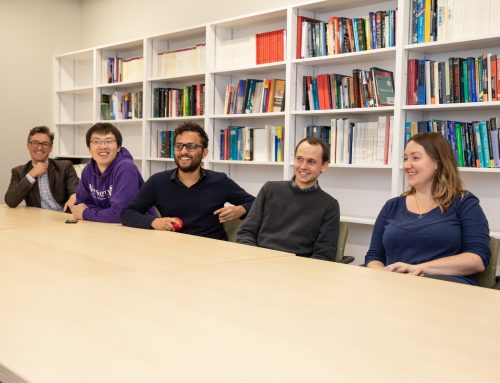Providing distinctive interdisciplinary training in the sciences and humanities is a central aim of the Rotman Institute. During the summer of 2021, we were very pleased to offer funding to support a variety of research projects that included ten of our graduate student members. Project supervisors included three Rotman postdoctoral associates and faculty members from the departments of philosophy, physics & astronomy, law, health studies, and occupational therapy.
View the summaries below to read about project descriptions and outcomes. As in years past, these projects have resulted in a range of scholarly impacts: helping students to refine goals for their doctoral theses, resulting in conference presentations, and leading to the successful drafting and submission of articles for peer-reviewed journals.
Project Description: This project drew from Heidegger’s phenomenology and especially Dreyfus’ interpretation of it (Dreyfus 1991) to develop a testable theory of (cognitive/environmental) perturbation. Based on Charles’ insights, as an expert carpenter, into the phenomenology of expert tool-use, the initial hypothesis was that there may be a correlation between learning effect (normally controlled for as a confound) and perturbation “strength”, such that “stronger” task perturbations are required to disrupt smooth coping for subjects with more task experience. Using the sheep herding paradigm first developed by Dotov et. al. (2010), the plan was to test for correlations between learning effect and different dimensions of perturbation strength.
Project Outcomes: Bakker conducted an examination of the way in which perturbations have been formalized in mathematics and physics. If perturbations of a system involve changes to the system’s parameters, and not just the mere disruption of some information or energy using process, then what counts as an “expert” system, such that the change to its parameters would need to be greater in order to count as a perturbation? In turn, this raises the more fundamental problem – what is a system? He further explored the nature of complex systems, beginning with Juarrero (1999), Bertalanffy (1969) and Luhmann (2013). As a member of Michael Anderson’s EMRG Lab, Bakker will continue wrestling with these deeper questions concerning the nature of systems in the reading they are working through this semester, Ladyman & Wiesner’s “What Is a Complex System?” (2020).
Project Description: In her 2018 book Self-Consciousness and ‘Split’ Brains: The Minds’ I, Elizabeth Schechter presents empirical literature on split-brain phenomena and dominant theories of consciousness, intentional agency, and personhood. Schechter argues that split brain subjects are at least typically two minds, but one person–and this entails rejecting the one-mind-per-person rule. Drawing on resources from Ecological Psychology, functionalist, and organicist traditions, we make two divergent assumptions. First, the supervenience base for mindedness is distributed across the whole embodied organism, its environment, and their interactions. Second, we are impressed with the surprising fact that split brain subjects actually do tend to find a means of maintaining psychological unity despite bodily disruption, and they do so quite spontaneously and flexibly. This project continued work started in 2019 and presented at the Association for the Scientific Study of Consciousness meeting, in virtual collaboration with Liz Schechter.
Project Outcomes: Following a review of Schechter’s book, Bowen’s working hypothesis has been refined and this paper is being drafted. The empirical basis for duality claims about about split brain subjects tend to rest on experiments that demonstrate forms of dual integration. The plan for the paper is as follows: After recounting Schechter’s position, we will reconcieve two central psychological aspects (i.e. forms of integration and self-awareness) not as facts about internal representational states of the brain and their interplay and referents, but as facts about the coordinated purposive activity of situated organisms with respect to their environments. After outlining our alternative framework, we will apply it to some of the compiled empirical phenomena.
Project Description: There is growing philosophical interest in newly-developed “deep learning” (DL) neural networks, and the degree to which they tell us something about biological learning and the mind more generally. In some ways this is a rekindling of the debates sparked by the emergence of PDP networks in the 80s, but as these new networks operate according to some novel principles, much of the old philosophical work has been rendered obsolete. Because deep learning proponents frame the operation of their systems in terms of “representation learning” and inferential processing, the success of these systems would seem to offer a vindication of the (much criticized) Computational Theory of Mind. However, a recent use of DL for interpolation rather than generalization on a task-relevant manifold could be framed as an ecological relationship of the machine’s activities and the data environment—an instance of direct perception rather than representation (Hassan et al. 2020). Further philosophical reflection on the fruitfulness of the concept of ecological information for understanding the success of DL algorithms is warranted.
Project Outcomes: Champion conducted a literature review including notes and summaries of several key journal articles considering the philosophical importance of machine learning with a focus on adversarial examples, as well as some technical journal articles and seminal philosophy of science articles dealing with scientific inference and confirmation. Preliminary writing for a journal article is underway, considering how multiple means of determination and projectability applies to the machine learning paradigm and could be used to establish the reliability of the brittle features detected in adversarial examples. Finally, Champion has interest in pursuing the use of categorization schemes in science and the impact of automated methods of categorization as a possible doctoral thesis topic.
Project Description: McLeod, Cichocki & Stewart are co-authoring a paper that discusses how AI algorithms on social media can exacerbate epistemic injustice and accompanying epistemic distrust, further dividing people along lines of race, ethnicity, gender, class, and the like. It also reflects on how these issues fit into developing literatures on algorithmic injustice and algorithmic oppression. An abstract for this paper was accepted for two virtual meetings that happened this summer: the CEPE (Computer Ethics Philosophical Enquiry)/IACAP (International Association for Computing and Philosophy) Joint Conference 2021: The Philosophy and Ethics of Artificial Intelligence, hosted by the Department of Informatics, Universität Hamburg, Germany; and the Feminism, Social Justice, and AI Workshop, hosted by the University of Waterloo. One aim of this project was writing versions of their paper for presentation and for publication, with the goal to have the paper published in a peer-reviewed philosophy journal.
Project Outcomes: A draft co-authored article from this project is currently under review for publication at the Feminist Philosophy Quarterly, as part of their special issue on AI and Social Justice. Before the paper went out for review, it was co-presented at the two conferences noted above. The authors received invaluable feedback from these presentations and afterwards collaborated to put the paper through several rounds of revision, which resulted in a substantially revised final version. The project members also were able to devote much of their summer to researching topics at the intersection of AI, ethics, feminist philosophy, and social justice. They were able to devote time preparing for and participating in the interdisciplinary Rotman AI ethics reading group, and also doing additional readings on the topic outside of this group.
Project Description: The “attention economy” – a nexus of mostly Internet-based corporations and their services, users, and customers, built upon attracting users’ attention – has recently come under fire. While ideas of informed consent, autonomy, and mental integrity constitute a large part of the normative framework used by critics, this work tends to ignore the body of work on these concepts found in other subfields of applied ethics. In line with calls to model the ethics of emerging technologies on more mature subfields of applied ethics (like bioethics), this summer project sought to remedy these conceptual shortcomings by pursuing two interrelated projects: (1) privacy protections and the right not to know and (2) attention and mental integrity.
Project Outcomes: This project examined whether protection of human attention from growing demands put on it by the digital environment ought to be instituted through the means of a legal “right to attention.” After reviewing work by leading proponents of this idea, we found their arguments wanting. Consequently, we decided to look to both empirical science of attention and to the newly emerging ethical discussions of “mental integrity” to advance a different rationale for having a right to attention. At the same time, we challenged some of the claims advanced by other authors on the topic to the effect that our attention is under severe threat and that legal remedies are the appropriate way to handle this situation. Ultimately, the project resulted in a draft of an article, to be submitted to a scholarly journal, outlining our case against current ways of arguing for the right to attention, and offering an alternative grounding for it, based on the concept of mental integrity.
Project Outcomes: Mattu co-authored “Philosophical Issues in Psychedelic Research: A Review of Some Emerging Themes” with philosopher of psychedelics, Dr. Chris Letheby. Jaipreet presented this paper at the Inaugural Western University Psychedelic Workshop on September 29, 2021.
A second paper, “Integrating Empirical Evidence and Philosophical Considerations in the Study of Serotonergic Psychedelics”will be co-authored with Mattu and her supervisor, Jacqueline Sullivan. It has been commissioned for a volume on Philosophical Perspectives on the Psychedelic Renaissance by Oxford University Press, edited by Dr. Letheby and Dr. Philip Gerrans. This paper was also submitted as a virtual poster at the Bi-Annual PSA Conference, November 11 – 13, 2021, in Baltimore, MD.
And finally, Mattu will present “Assessing Construct Validity of the Head-twitch Response (HTR) as a Measure of Hallucinogenic Activity in Mouse Models of Serotonergic Psychedelics” at the Pacific Division Meeting of the Philosophy of Science Association (PSA), April 13 – 16, 2022, in Vancouver, B.C. with commentary provided by Dr. Patricia Churchland. Based on feedback at this session, Mattu plans to submit this paper to Synthese.
Project Description: How does culture shape cognition and action? Classical sociocultural research construes “culture” as symbolic structures internalized by agents to make sense of their surroundings (Geertz 1973, D’Andrade 1992). Recent sociocultural research has critiqued the classical model of enculturation-as-internalization for ignoring the role of the body-situated-in-an-environment in underpinning cognition. A key conceptual tool used by such approaches is the habitus, an embodied cognitive structure—sets of dispositions calibrated to objective sociocultural conditions in which they were developed—which shapes agents’ perceptions and actions (Bourdieu 1977).
Project Outcomes: Ravikumar’s project sought to investigate how the habitus works. Lizardo (2004) makes the case that the habitus is best understood in terms of Jean Piaget’s constructivist psychological structuralism. We point out that the Piagetian account of cognitive development is methodologically individualistic as it ignores the role of the social environment in the development of an individual. Most of Piaget’s investigations were on children who were studied in isolation, away from other people in the children’s everyday course of life who play an important role in their psychological development. We instead highlight the psychologist Lev Vygotsky’s methodologically non-individualistic approach as a more appropriate alternative for understanding the habitus. Vygotsky demonstrates that it is mainly through other people, who embody and enact sociocultural practices, that children develop their concepts, modes of reasoning, and symbolic mastery (see Vygotsky 1978; 2012). Future work will involve developing a Vygotskian framework for understanding how the habitus works.
Project Outcomes: During the course of the Fellowship, Ritchie played a critical role in assisting other members of the HELP Lab who were unfamiliar with bioethics to be brought up to speed. She also led one of the major projects in the SSHRC grant: a scoping review on the best interests standard in children’s decision-making. This project is ongoing, given the number of articles identified in the scoping review, and Ritchie continues to provide leadership to the student team. We anticipate a minimum of one publication from this work, although it is probable that there will be more than one. Additionally, this work will culminate in a minimum of two conference/colloquium presentations.
(1) Smith MJ, Bernard C, Blackman N, Zlotnik Shaul R, Ritchie Z, on behalf of the Ontario COVID-19 Bioethics Table. (2021). Vaccinating Ontarians Aged 12-17: Legal and Ethical Requirements for Consent. May 21, 2021. Submitted to Ontario’s Chief Medical Officer of Health and posted on University of Toronto Joint Centre for Bioethics website.
(2) Ritchie Z, Smith MJ, Gulati N, Teachman G. Legal and Ethical Deliberations in Children’s Healthcare: Identifying Ethical Problems or Scoping Moral Terrain? Poster presented at The Canadian Hospice Palliative Care Association Conference. October 21-22, 2021. Ottawa, Ontario, Canada (Virtual).
(3) Listening to Children in Healthcare Matters: Examining the Intersection of Family-Centred Care, Best Interests, and Children’s Agency. First draft completed (led by Z. Ritchie) – currently being finalized for submission to the Journal of Law, Medicine, and Ethics.
Project Outcomes: Yetman produced an annotated bibliography and a thematic bibliography. The annotated bibliography contains detailed descriptions of 32 papers, with summaries of and comments on their arguments, with summaries of the abstracts of an additional 34 papers in which philosophy of astrophysics is considered alongside other topics. We believe this constitutes a reasonably complete coverage of the entire literature on the philosophy of astrophysics. The thematic bibliography groups the surveyed papers into categories and identifies areas for future research. The categories include realism and anti-realism, methodologies, models and simulations, epistemological issues, representation and visualization, sociology of scientific knowledge and social issues, typicality theories and testing, astrophysics and religion, and ancient astrophysics. Among the areas identified as promising for future work are perspectival modeling and realism, the “cosmic laboratory”, epistemological analysis of data generation and analysis, historical versus experimental methods in astrophysics, changes in astrophysical methods, model representation and the experimenter’s (or simulator’s) regress. Barmby & Vidotto are exploring opportunities for follow-up on this work through publication.
Image credit: Patrycja Chociej on Unsplash






